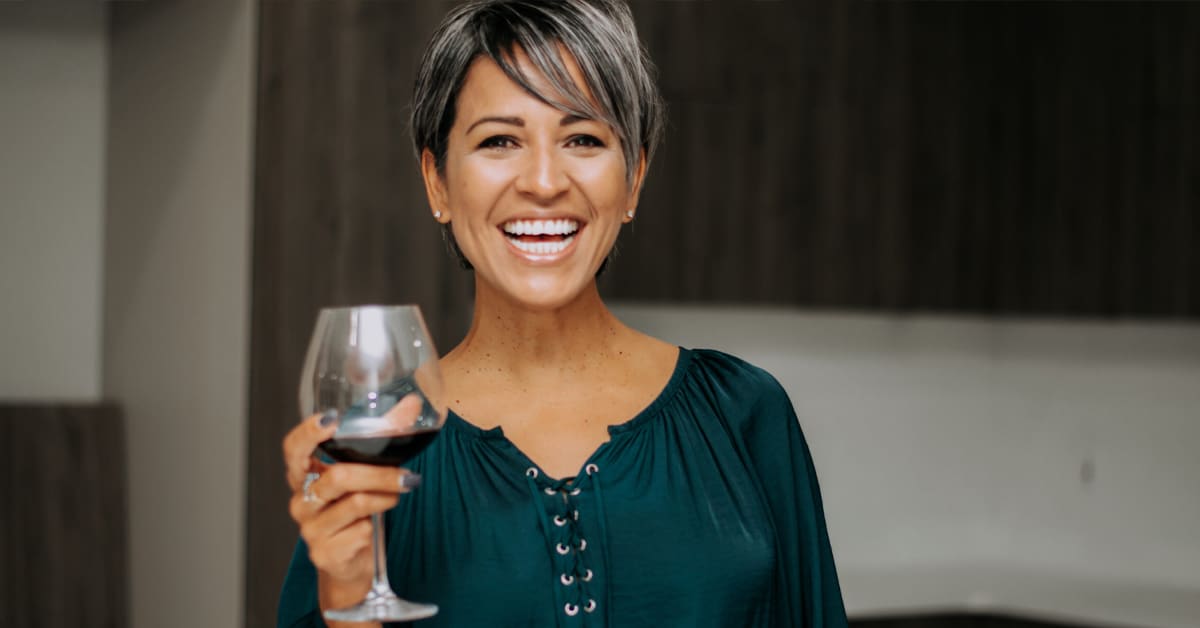
5 tips to reduce holiday stress so you can feel better and be healthier
Are you feeling holiday stress now? Do the expectations and uncertainty of the season weigh you down? Stress can worsen during the holidays. If you’re feeling extra stressed at this time of year, this article is for you.
Stress is the natural response your body and mind have when you’re being challenged. It’s a perfectly normal reaction to feeling overwhelmed or pressured. Stress can help you react to negative situations with more focus and attention. This is a good thing.
However, when stress feels like it’s too much to bear or has gone on for too long, you can suffer. Stress can contribute to the number one cause of death in women: heart disease. Extreme emotional events have been linked with arrhythmias (irregular heartbeat), heart attacks (myocardial infarction), “broken heart syndrome” (Takotsubo cardiomyopathy), and even sudden death. High levels of stress over the long term are associated with high blood pressure, atherosclerosis, and heart disease.
The good news is that there are things you can do to reduce holiday stress. Here are the top 5 cardiologist-approved tips.
1.
Take control of things you can
The holidays are busy. How you spend your precious time, energy, and money is up to you. You may feel the holiday stress from your family and friends—even more this year with COVID-19—and you can choose how you respond. The holidays don’t have to be perfect and you don’t have to take on the full responsibility to make it happen for everyone else.
You are empowered to gently set boundaries and graciously decline to meet other people’s expectations. These can make a huge difference in the amount of stress you feel. Decide what your highest priorities are and meet those. Everything else is optional.
You can only control what you do and how you react to situations. You’re not responsible for how others handle things. Taking control of things that you can (and leaving those that you can’t) is my number one tip for reducing holiday stress.
2.
Take care of your physical health
When you feel stress, your body physically prepares to react to danger. Your heartbeat and breathing get faster. Your brain focuses attention on the threat while your muscles prepare to fight or flee.
Keeping your body physically healthy throughout the holidays (and beyond) can help you deal with the effects of stress. This means not smoking, staying active, eating healthy food (not too much sugar), and drinking enough water (and not too much alcohol). All of these healthy lifestyle tips are more important now than ever.
3.
Take care of your mental health
Take some time to relax and unwind your mind to reduce holiday stress. Using relaxation techniques not only helps your mental health, but they can reduce the stress hormones that affect your physical health.
Some tips to care for your mental health include:
- Think positively and look on the bright side of things
- Enjoy a warm bath or soothing music
- Breathe deeply and slowly
- Try gentle physical activity like stretching or yoga
- Release tension by lying down comfortably and relaxing your muscles
- Get a good night’s sleep as often as you can
4.
Be social and connect with friends and family
During the holidays, social connection feels even more important. Sharing joy, gratitude, and laughter with loved ones can be a powerful way to be present with others and reduce stress. Plus, loneliness can increase your risk of heart disease and stroke so we want to avoid this and connect with people who we care about.
During the holidays, you can also be social with your community by volunteering. Perhaps a charity or neighbor can use a helping hand. Knowing you’re helping someone else can also reduce the feelings of stress and bolster your social connection and joy.
The holidays don’t have to be the same every year. During the pandemic, your local public health authority may ask you to keep your gatherings small or even host them online. Changing our beloved traditions may add to your holiday stress and there are ways to be socially close while being physically distant. Choose a few of your traditions and rituals to hold on to. Call your family and friends on the phone or even via video call. Send packages in the mail or drop them off at the door. Be social and connect in a safe way to preserve yours and others’ health so you can enjoy their company on holidays to come.
5.
Reduce your social media and screen time
Social media and news can cause unnecessary stress. With the holidays and everything else going on in the world, it’s hard to spend time on a screen and not feel extra stress.
At the very least, turn off your notifications. You don’t need to be distracted every time someone “likes” or mentions you or your posts. Seeing everyone’s perfect holiday family photos, baking, and wrapped gifts may cause unneeded holiday stress. Unfollow people you don’t know or whose posts make you feel worse. Consider removing the apps from your phone for the holidays.
Plus, if you’re taking my advice to be social—be social with people, not platforms. Call someone instead of DMing them. Have a videoconference instead of “liking” their posts. Have conversations with people and limit your social media and screen time.
Reduce Heart Stress summary
Some stress is healthy as it can get us ready to react quickly to danger. However, too much stress can have a negative effect on your health.
With some planning and positive thinking, you can reduce holiday stress. Do this by taking control of the things you can, taking care of your physical and mental health, and using the holidays to be social and connect directly with friends and family (and not on social media).
For more tips, contact us today.
References
5 things you should know about stress. (n.d.). National Institute of Mental Health. Retrieved from https://www.nimh.nih.gov/health/publications/stress/index.shtml
Esler M. (2017). Mental stress and human cardiovascular disease. Neuroscience and biobehavioral reviews, 74(Pt B), 269–276. https://doi.org/10.1016/j.neubiorev.2016.10.011
Norelli, S. K., Long, A., & Krepps, J. M. (2020). Relaxation Techniques. In StatPearls. StatPearls Publishing.
Valtorta, N. K., Kanaan, M., Gilbody, S., & Hanratty, B. (2018). Loneliness, social isolation and risk of cardiovascular disease in the English Longitudinal Study of Ageing. European journal of preventive cardiology, 25(13), 1387–1396. https://doi.org/10.1177/2047487318792696

